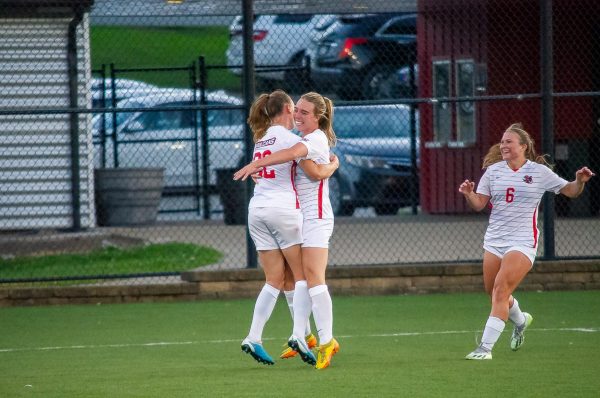U.S. Soccer mandates players to stand – right or wrong?
April 3, 2017
Michael Bradley has never had a problem making his voice known for U.S. Soccer.
Bradley, a midfielder for the United States Men’s National Team and Toronto FC in the MLS, isn’t one of those “shut up, and just play your sport” athletes. Bradley doesn’t mind commenting on issues that others stay quiet about and just push off to the side. He said that came from his father, former U.S. Men’s National Team head coach Bob Bradley, and his mother.
“From the time I was little, my parents taught me and my sisters to not be afraid to show people who we are, to be strong in who we are and strong in what we believe in,” Bradley said. “It doesn’t mean to say that everything I say or do is spot-on. But I’m not afraid one bit to be who I am.”
Recently, in an interview with Sports Illustrated Grant Wahl, Bradley, who is the captain of the U.S. Men’s National Team, opened up on U.S. Soccer’s new policy that mandates that players must stand for the national anthem.
“I think you should stand,” Bradley said. “If you’re choosing to represent the U.S. national team, you are also choosing to respect our country, to respect the flag, to respect the anthem and to represent it all in the best possible way. And so I feel strongly that everyone should stand. If you have that big of a problem with something that’s going on in our country or feel so strongly that you need to protest in that way, then I would say don’t come. Don’t play at all.”
However, Bradley wasn’t finished explaining.
“Having said all of that, I do not like the idea that it’s now mandatory to stand,” Bradley continued. “People have the right to peacefully protest and express what they think. And in a very simple way, given everything that’s going on in our country, given everything that our president and this current administration has done, everybody has to be very careful about setting certain precedents that in any way start to cross that line.”
To stand or not to stand has been a question plaguing athletes in all sports in the United States. Colin Kaepernick spearheaded the movement when he elected not to stand for the national anthem in the 2016-17 NFL season with the San Francisco 49ers. At the U.S. Soccer level, U.S. Women’s National Team midfielder Megan Rapinoe elected not to stand for the anthem.
Now, U.S. Soccer has implemented this new rule. It seems reasonable, if you’re looking at it from a broad aspect. The players are representing the United States of America on the pitch. It makes sense, or does it? Doesn’t representing the United States of America also give you the right to speak your mind, or act it out in a reasonable and peaceful manner?
Megan Rapinoe did not harm anyone when she took a knee during two U.S. Women’s National Team matches in 2016. Yet, U.S. Soccer implemented a rule that limits the freedom of expression by their national team players.
In short, it’s unfair to limit them. U.S. Soccer needs to look at it through a different lens than the one their looking through right now. If a player truly did not like the United States, they wouldn’t be representing them on the pitch.
If a person takes a knee, that doesn’t mean they hate the United States; they are just standing up for a cause they believe in. If they really wanted to make U.S. Soccer mad, players could just turn down national team call-ups.
While U.S. Soccer might be limiting the freedom of expression on the pitch, players could look toward Bradley as an example. As mentioned earlier, Bradley doesn’t just play his 90 minutes and then go home. He’s vocal about issues surrounding the United States (Bradley was also critical of President Donald Trump’s travel ban).
Athletes should remember that they don’t just have to shut up and play their sport. Following Bradley’s steps isn’t a bad idea for an athlete who wants to speak their mind.























